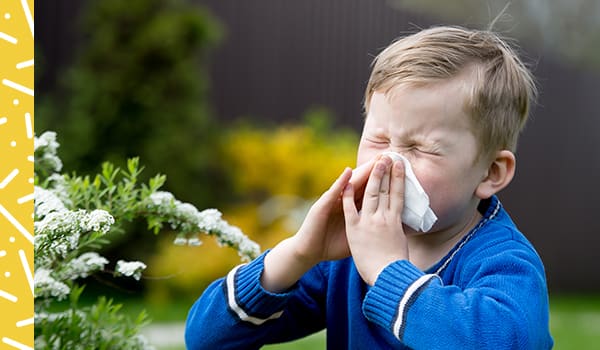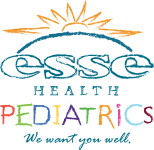Is it Allergies or Asthma?
Early identification of childhood allergies or asthma is crucial for effective management and treatment. Learn about the signs and symptoms to look out for, as well as tests and treatment options that can help your child breathe easier and live a healthier, happier life.
While asthma and allergies are distinct conditions, they share some similarities. Both involve an overreaction of the immune system, and both can be triggered by environmental factors such as allergens. Additionally, some people with asthma can also have allergies, and vice versa.
Allergies are caused by hypersensitivity of the immune system - when the body reacts abnormally to a foreign substance, such as pollen, dust mites, pet dander, or some foods. The body produces histamines that cause symptoms that can range from mild to severe, and may include sneezing, runny nose, itchy eyes, hives and anaphylaxis.
Asthma, on the other hand, is a chronic respiratory condition that affects the lungs and is characterized by inflammation and narrowing of the airways, leading to difficulty breathing, wheezing, coughing and tightness in the chest. It is often triggered by environmental factors such as cold air, smoke, pollen and exercise.
How Common Are Allergies in Children?
Whether seasonal or throughout the entire year, allergies can bring misery to some families. The good news is, with proper treatment and management, children with allergies can lead happy, healthy lives.
According to the American College of Allergy, Asthma, and Immunology, around 50 million Americans have allergies. Children are particularly susceptible to developing allergies, and it's estimated that up to 40% of children suffer from allergies.
Types of Allergies in Children
- Airborne allergies - These are caused by airborne particles such as dust, pollen, and pet dander.
- Food allergies - These are triggered by certain foods such as peanuts, shellfish, and dairy products.
- Insect sting allergies - Some children are allergic to bee stings, wasp stings, or other insect bites.
- Medication allergies - Certain medications can cause allergic reactions in children.
Signs and Symptoms of Childhood Airborne Allergies
If your child has an airborne allergy, they may experience a variety of symptoms. If any of these symptoms are persistent, it's important to speak to your pediatrician about the best course of treatment.
Some of the most common signs and symptoms of airborne allergies include:
- Sneezing
- Runny nose
- Itchy eyes, nose, and throat
- Congestion
- Coughing
- Wheezing
- Shortness of breath
Compare your child’s symptoms to other illnesses - download our Symptoms Checklist (pdf)
Managing Seasonal Allergies
Help your child get through allergy season by reducing the time they spend in contact with the allergens that cause symptoms. When pollen is most plentiful—and symptoms are at their peak—your child may be better off playing indoors. Though it’s tempting to throw them open when the first warm days arrive, it may be better for your allergy sufferer to keep windows closed and switch on the air conditioner.
Although allergies are common, with the right treatment they can be managed effectively. It is important to work closely with your child's pediatrician to develop a personalized treatment plan and to monitor your child's symptoms over time.
Schedule an appointment
If your child already sees an Esse Health Pediatrician, you can call or text your doctor’s office to schedule an appointment for your child. If you don't have a pediatrician, see our locations to find one near you.

There are several over-the-counter medications that are effective at relieving symptoms.
- Most can be given once a day and without the risk of drowsiness
- Consider liquid or chewable versions if they are unable to swallow pills
- Read the labels and talk with a pharmacist or your pediatrician if you have questions about which is the best option for your child.
Locations
Pediatric & Adolescent Medicine at Watson Road
9580 Watson Road, Suite A
St. Louis, MO 63126

